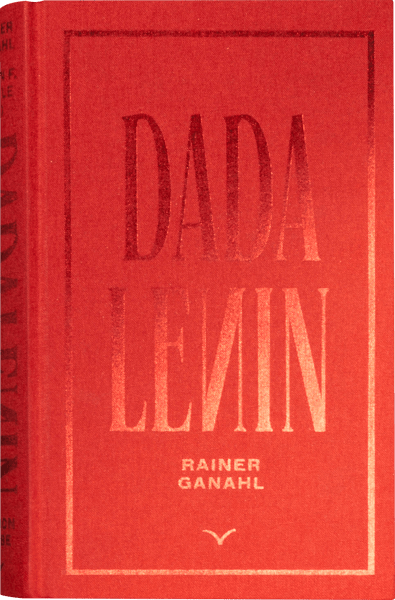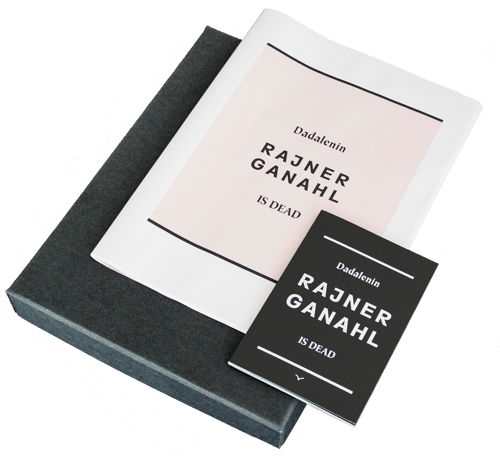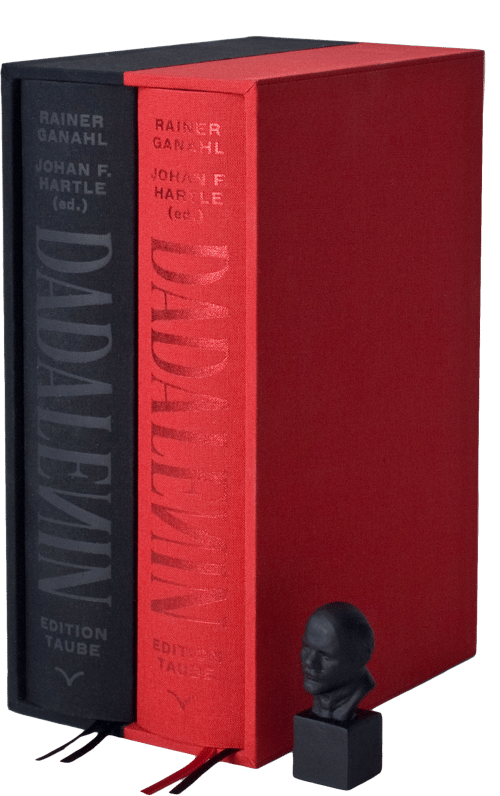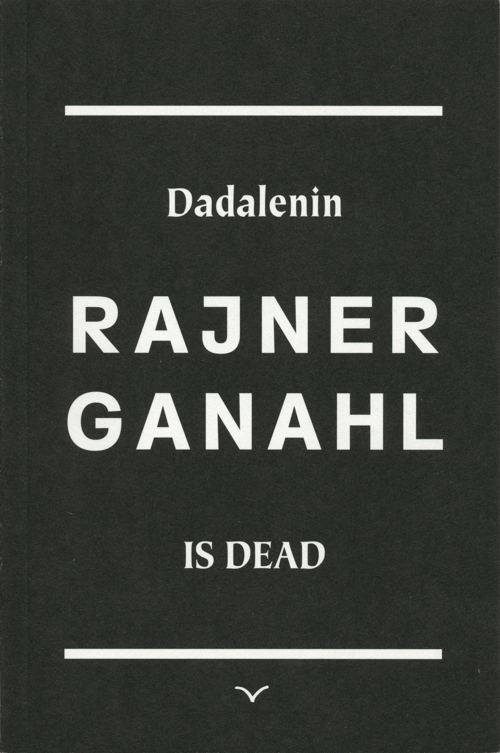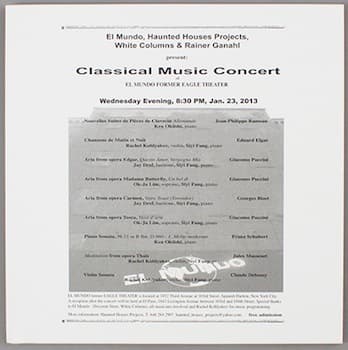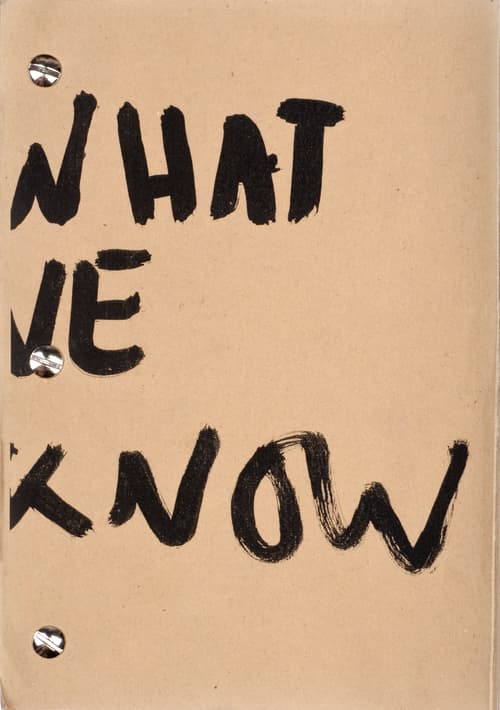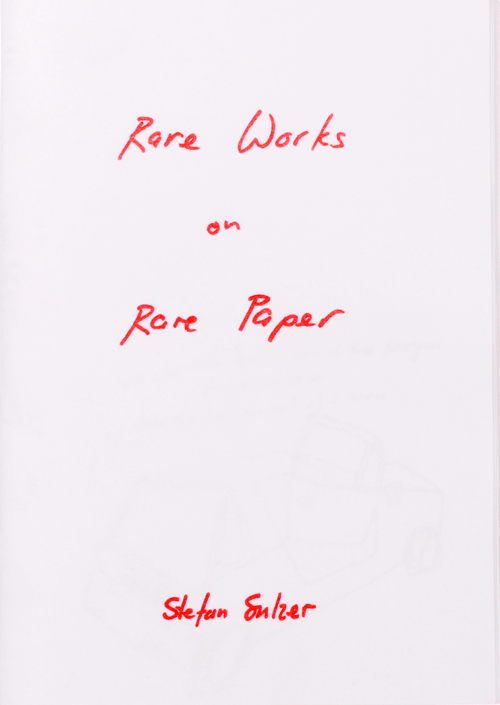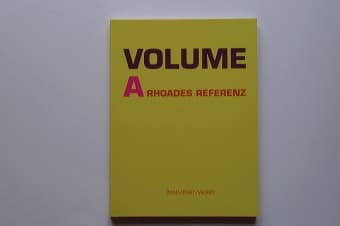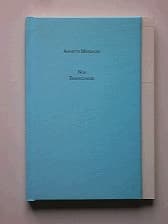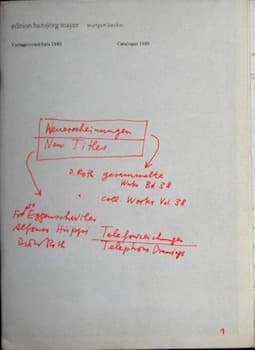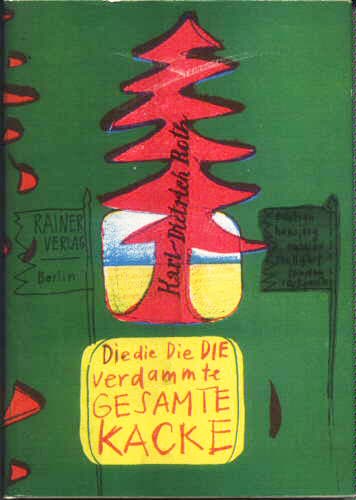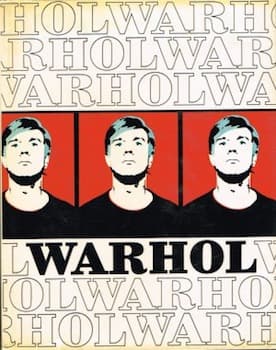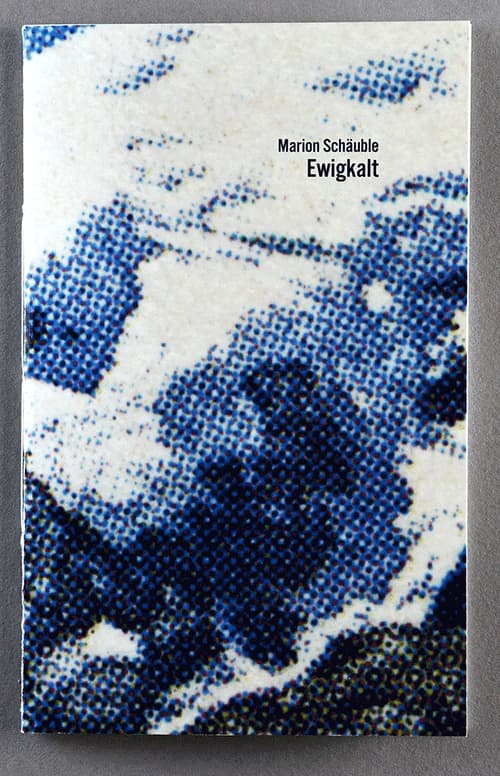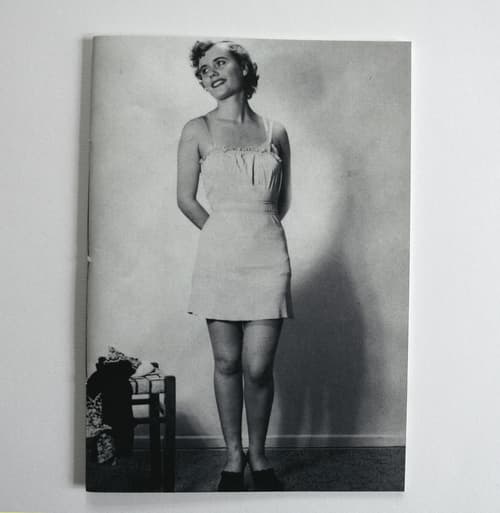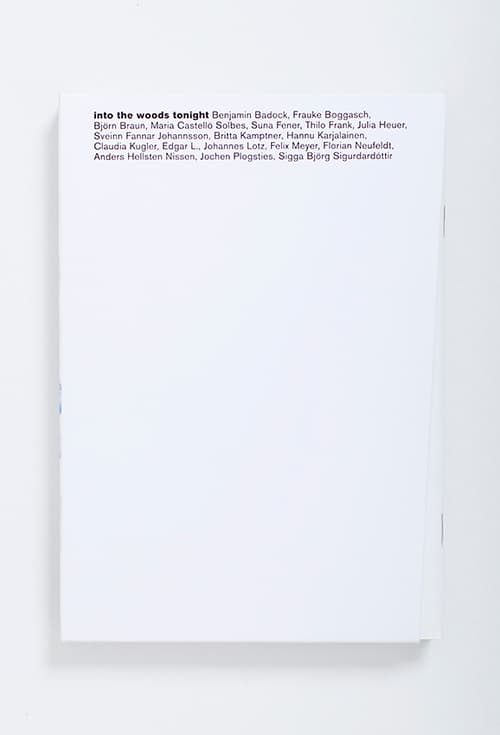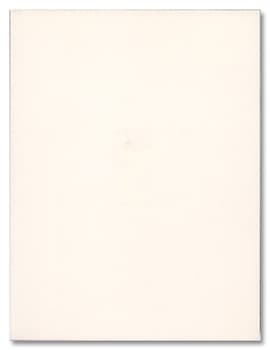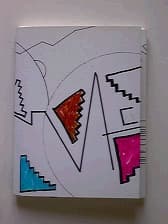Notes
Glossy Foil Embossing on cover, text in English
Publisher Note english german
DADALENIN reconstructs and speculates about how Dada and Lenin had more in common than is usually assumed. The book points to some of the tragicomic aspects of their parallel and overlapping artistic and political histories in order to question the unfulfilled legacy of the avant-garde.
DADA is founded in the Cabaret Voltaire in Zurich's Spiegelgasse a stone’s throw from the apartment where Lenin, in Swiss exile, is writing his book on Imperialism. This historical coincidence opens up fundamental questions concerning the relation between aesthetic avant-garde and political vanguard.
In Rainer Ganahl’s voluminous series of works DADA and Lenin are abundant sources of historical imagination. To dive into the historical situation Ganahl uses a variety of artistic media and techniques—ranging from animation movies to theatre performances, from ink drawings to bronze sculptures, departing from a number of historical details and catch phrases, from the no-man’s land between porn, terror and the history of the avant-gardes.
Co-editor Johan F. Hartle’s text situates DADALENIN in the development of Rainer Ganahl’s work and reconstructs it in the context of current debates on the artistic and political avantgarde. DADALENIN thus appears as a reflection of numerous key motifs of contemporary cultural theory, indirectly haunting us in all kinds of monstrous alliances. The interview with Jenny Borland discusses the concrete rationale of Ganahl’s artistic production—its media, techniques and logics of development. Boris Groys discusses DADALENIN’s perspective on the history of the avant-garde in light of the major events in 20th century Russian and European history to conclude that “All of history is Dadaist” (Groys).
Edited by Rainer Ganahl and Johan F. Hartle
With contributions by Boris Groys and Jenny Borland
DADALENIN rekonstruiert und spekuliert darüber, dass Dada und Lenin mehr gemeinsam hatten, als man gemeinhin annimmt. Das Buch zeigt einige der tragikomischen Aspekte ihrer parallelen und sich überschneidenden künstlerischen und politischen Geschichten auf, um das unerfüllte Erbe der Avantgarde zu hinterfragen.
Der DADA wird im Cabaret Voltaire an der Zürcher Spiegelgasse gegründet, einen Steinwurf von der Wohnung entfernt, in der Lenin im Schweizer Exil sein Buch über den Imperialismus schreibt. Diese historische Koinzidenz wirft grundsätzliche Fragen nach dem Verhältnis von ästhetischer Avantgarde und politischer Avantgarde auf.
In Rainer Ganahls umfangreichem Werkzyklus sind DADA und Lenin reichhaltige Quellen historischer Imagination. Um in die historische Situation einzutauchen, bedient sich Ganahl einer Vielzahl künstlerischer Medien und Techniken - vom Animationsfilm bis zur Theaterperformance, von der Tuschezeichnung bis zur Bronzeskulptur, ausgehend von einer Reihe historischer Details und Schlagworte, aus dem Niemandsland zwischen Porno, Terror und der Geschichte der Avantgarden.
Der Text des Mitherausgebers Johan F. Hartle verortet DADALENIN in der Entwicklung von Rainer Ganahls Werk und rekonstruiert es im Kontext aktueller Debatten zur künstlerischen und politischen Avantgarde. DADALENIN erscheint so als Spiegelbild zahlreicher Schlüsselmotive der zeitgenössischen Kulturtheorie, die uns indirekt in allerlei monströsen Allianzen heimsuchen. Im Interview mit Jenny Borland geht es um die konkrete Begründung von Ganahls künstlerischer Produktion - ihre Medien, Techniken und Entwicklungslogiken. Boris Groys erörtert DADALENINs Perspektive auf die Geschichte der Avantgarde im Lichte der wichtigsten Ereignisse der russischen und europäischen Geschichte des 20. Jahrhunderts und kommt zu dem Schluss, dass „die gesamte Geschichte dadaistisch ist“ (Groys).
Herausgegeben von Rainer Ganahl und Johan F. Hartle
Mit Beiträgen von Boris Groys und Jenny Borland
| Publisher |
|
|---|---|
| Release Place | Stuttgart, Germany |
| Edition | 1st edition |
| Release Date | 2013 |
| ISBN | 978-3-9814518-4-9 |
| Credits |
Artist:
|
| Printrun | 700 |
| Identifiers |
ISBN-13:
978-3-9814518-4-9
|
| Original Price | 25.00 EUR |
| Object | book |
|---|---|
| Format | Hardcover |
| Dimensions | 16.0 × 23.0 cm |
| Interior | |
|---|---|
| Pages | 608 |
| Color | 1, Black |
| Technique | Offset |
Stories
CV Booksfeatured in
Les Séances Matérialisteslast updated 1227 days ago
Data Contributor: Christoph Schifferli
Created by editiontaube
Edited by editiontaube, Lea
